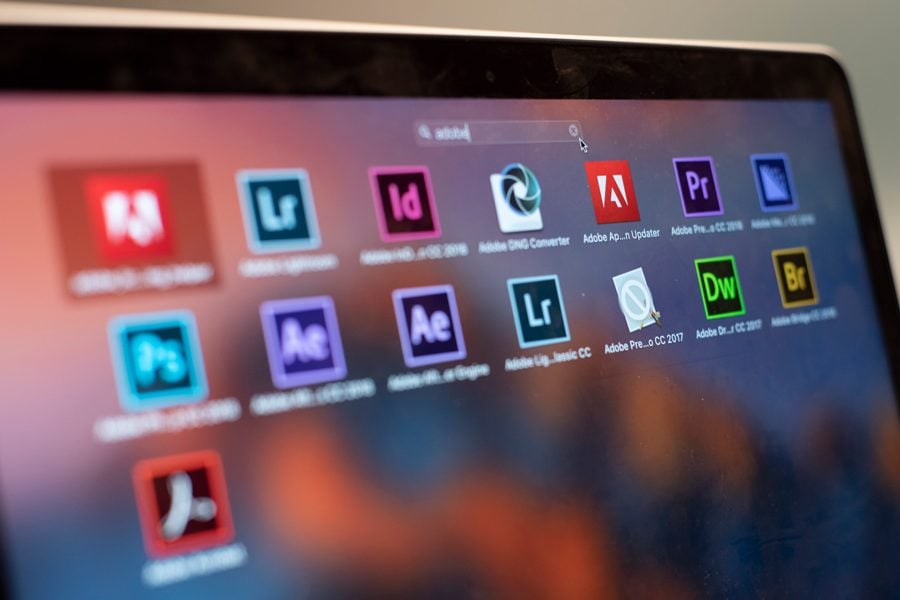NU Libraries to offer remote access to computers with Adobe Creative Cloud, other software
Daily file photo by Colin Boyle
A laptop with some Adobe Creative Cloud apps. During Spring Quarter, all NU undergraduates had free access to Adobe Creative Cloud apps.
August 13, 2020
From March 19 to July 6, Adobe offered free access to Adobe Creative Cloud desktop apps to students and faculty at universities across the country. The offer coincided with the quick transition to online learning in the spring.
With the “grace access” now expired and Fall Quarter approaching, some Northwestern students who use Adobe products in their classes and extracurriculars are looking to the University for assistance.
As of Wednesday night, students’ best option is connecting to NU Libraries’ computers, which have Creative Cloud downloaded on them. The current contract between Adobe and NU allows for University-owned machines to hold the Adobe license, according to Jeff Prah, senior director of technology and innovation at Medill.
Although the final details are expected to come later, members of the NU community can currently use their NetID and password to remotely access library computers from their personal computers, according to Clare Roccaforte, director of marketing and communication at NU Libraries.
“These Remote PCs … are loaded with dozens of software programs, including the full Adobe (Creative) Suite,” Roccaforte told The Daily in an email.
The Remote PCs are available on a first-come, first-serve basis, and each login session times out at 10 hours, Roccaforte said. Currently, there are 40 to 50 Remote PCs with these parameters. As plans continue to be finalized, service details such as the number of Remote PCs available and the length of a login session may change, Roccaforte added.
For detailed information on how to connect to a Remote PC, refer to NU Libraries’ online guide. There are two options for remote connection: access through the VMware Horizon website or the VMware Horizon Client software.
Connecting to these Remote PCs means the user’s personal computer screen would act like the screen of a library computer, McCormick junior Liam Braddock, an NU Information Technology Help Desk Analyst, told The Daily in an email.
“The library computer screen will appear in a tab in your web browser,” Braddock said about the website access method. “You will still be able to access apps and files on your own computer as well as switch between tabs on your browser and have the library computer up in the background. If you open multiple tabs or programs on the library computer, you will navigate through them all from one tab in your computer’s browser.”
It is currently unknown how feasible the plan will be once Fall Quarter begins with typical student traffic accessing the University’s resources. Given the uncertainty, Prah said Medill professors whose classes have historically used Adobe software are modifying their course plans.
At Medill, the focus is on learning how to tell stories rather than learning the software itself, Prah said. As a result, Medill is currently looking into free or less expensive alternatives to Adobe software that its students can use for their classes. However, Prah said it is possible that Adobe could offer a similar “grace access” to college students once the school year begins.
“We’re very aware of trying to find solutions globally to make sure the student experience is still the best it possibly can be,” Prah said. “Adobe (access) goes along those lines.”
Email: [email protected]
Twitter: @gracewu10
Related Stories:
— “These are very strange times:” remote learning disrupts student films, RTVF classes
— University library buildings on Evanston, Chicago campuses to close until at least April 17


